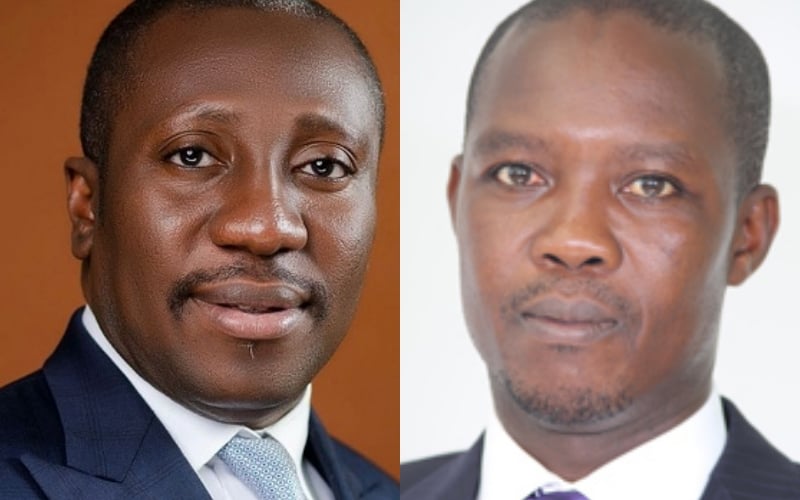The parliamentary vetting of President John Dramani Mahama’s initial ministerial nominees on January 13, 2025, descended into a heated confrontation, exposing underlying tensions within the Appointments Committee. The spark igniting the fire was Minority Leader Alexander Kwamena Afenyo-Markin’s critique of the nomination process, which he argued deviated from established parliamentary procedures. This critique set the stage for a pointed exchange with Mahama Ayariga, the Member of Parliament for Bawku Central, who rose to defend the process and challenged the relevance of certain parliamentary rules that had been recently overturned by a Supreme Court decision. This initial clash foreshadowed the escalating conflict to come.
Afenyo-Markin’s insistence on continuing his statement, despite a request from Committee Chairman and 1st Deputy Speaker Bernard Ahiafor to conclude, further fueled the flames. Afenyo-Markin cited precedent, reminding the committee of previous instances where minority leaders were granted extended time for opening remarks. He perceived the chairman’s intervention as an attempt to stifle his contribution, expressing his frustration with the interjections and demanding respect for his right to speak. This perceived curtailment of his speaking time escalated the tension, transforming a procedural disagreement into a personal affront.
Chairman Ahiafor responded to Afenyo-Markin’s challenge with calm but unwavering resolve. Asserting his authority, he declared he would not be intimidated. This firm stance underscored the power dynamics at play, highlighting the inherent tension between maintaining order and respecting the rights of individual members. The chairman’s response, while measured, signaled a refusal to be bullied and a commitment to upholding the committee’s procedures. The clash between these two prominent figures highlighted the deeper divisions within the committee and foreshadowed potential difficulties in the vetting process.
This initial clash during the vetting process served as a microcosm of the broader political landscape. The disagreement over procedural matters reflected underlying tensions between the majority and minority parties, tensions likely exacerbated by the recent Supreme Court ruling that had overturned existing parliamentary rules. This ruling, and its implications for parliamentary procedure, formed the backdrop against which this confrontation unfolded. Afenyo-Markin’s invocation of past practice and Ayariga’s reference to the Supreme Court ruling underscored the complex interplay between established tradition, evolving legal interpretations, and the raw exercise of political power.
The incident also raises questions about the effectiveness of the Appointments Committee and its ability to conduct impartial vetting processes. The heated exchange between Afenyo-Markin and Ahiafor, and the underlying procedural disputes, threaten to overshadow the substantive task of evaluating the qualifications of the ministerial nominees. The focus shifted from assessing the nominees’ suitability for their proposed roles to managing the interpersonal conflict within the committee itself. This raises concerns about whether the committee can effectively fulfill its mandate in a climate of such partisan discord.
The confrontation during the vetting process serves as a stark reminder of the challenges facing Ghana’s Parliament. While robust debate is a cornerstone of a healthy democracy, the descent into personal animosity and procedural wrangling can undermine the institution’s credibility and effectiveness. The incident underscores the need for improved communication, mutual respect, and a renewed commitment to upholding parliamentary procedures, even when disagreements arise. The ability of the Appointments Committee, and indeed the Parliament as a whole, to navigate these tensions will be crucial for the successful governance of the country and the preservation of its democratic institutions. The vetting of ministerial nominees, a process intended to ensure accountability and transparency, became a stage for political maneuvering, potentially jeopardizing the very principles it was designed to uphold.














